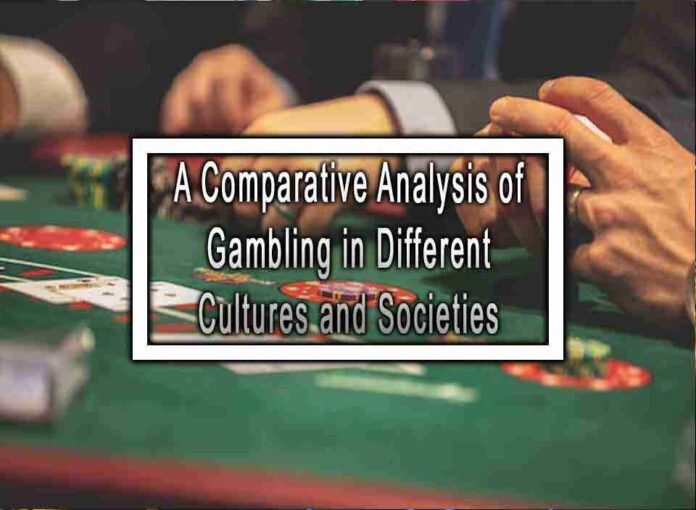Gambling practices and attitudes vary significantly across different cultures and societies worldwide. Here is a comparative analysis of gambling in various cultures:
1. Western Culture
In Western societies, gambling is generally viewed as a form of entertainment and leisure activity. It is regulated by laws and regulations that aim to ensure fairness, protect consumers, and prevent problem gambling. Popular forms of gambling include casino games, sports betting, lotteries, and online gambling.
2. Asian Culture
Gambling has a long history in many Asian cultures, often associated with socializing, luck, and superstition. In countries like China, Macau, and Singapore, casinos are major tourist attractions. Traditional gambling games like Mahjong and Pachinko are also prevalent. However, some Asian countries have stricter regulations or even ban gambling altogether due to cultural or religious beliefs.

3. Islamic Culture
Islamic societies generally have strong restrictions on gambling due to religious teachings. Gambling is considered haram (forbidden) under Islamic law. As a result, gambling activities are largely prohibited in countries with Islamic majority populations. However, there may be exceptions for certain forms of gambling in some regions.
4. Native American Culture
In Native American cultures, gambling has played a significant role for centuries. Many Native American tribes in the United States operate casinos on their lands, generating revenue for their communities. These casinos offer various forms of gambling, including slot machines, table games, and bingo.
5. Nordic Culture
In Nordic countries like Sweden, Norway, Finland, and Denmark, gambling is regulated by government authorities. These countries have state-run monopolies or licensed operators that provide gambling services. There is a focus on responsible gambling measures and social welfare programs to address potential gambling-related issues.
6. African Culture
Gambling practices in Africa vary widely across different countries and regions. Some African countries have a long history of traditional gambling activities, such as dice games and sports betting. In recent years, the popularity of casinos and online gambling has been growing in several African countries, but regulations and attitudes towards gambling differ.
7. Indigenous Culture
Indigenous cultures around the world have diverse perspectives on gambling. Some tribes embrace traditional forms of gambling as part of their cultural heritage and community activities. However, it’s important to note that indigenous populations may face higher risks of problem gambling due to social and economic factors.
It’s crucial to recognize that these cultural comparisons provide a broad overview and may not capture the full complexity and diversity within each culture. Gambling attitudes and regulations can also evolve over time as societies change. Local laws and regulations should always be followed when engaging in gambling activities in a specific culture or society.











